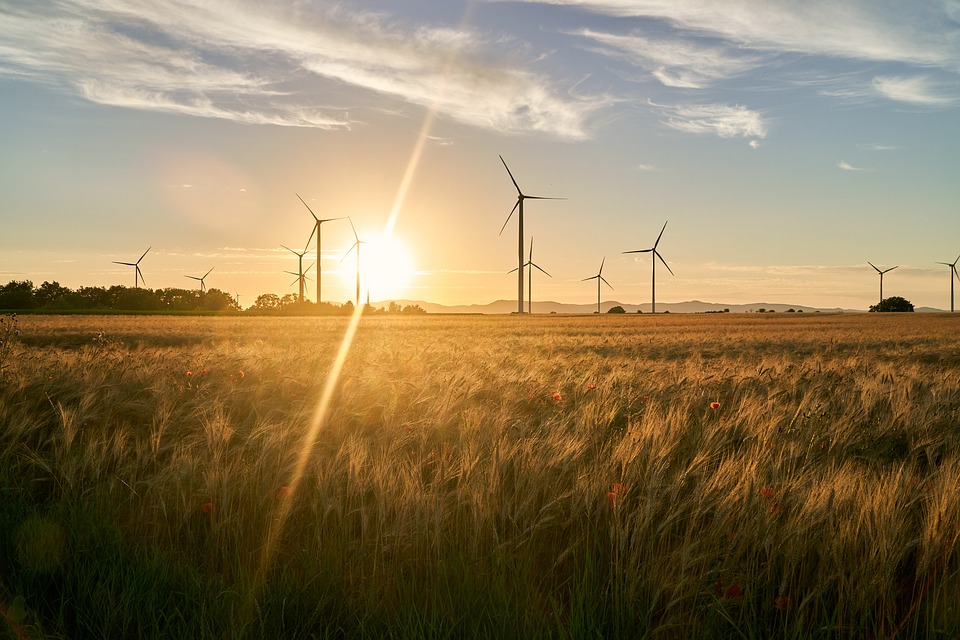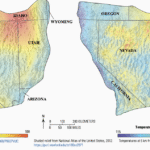Unlocking Energy Efficiency: The Benefits of Integrated Solutions
As the world continues to grapple with the challenges of climate change, energy efficiency has become a critical component of any sustainable energy strategy. With the increasing demand for energy and the need to reduce greenhouse gas emissions, it is essential to adopt energy-efficient solutions that can help reduce energy consumption and minimize waste. In this article, we will explore the benefits of integrated energy efficiency solutions and how they can help unlock a more sustainable future.
The Importance of Energy Efficiency
Energy efficiency is crucial for reducing energy consumption and minimizing waste. By adopting energy-efficient solutions, we can reduce our reliance on fossil fuels, decrease greenhouse gas emissions, and lower energy costs. Energy efficiency also helps to improve the overall performance of buildings, industries, and homes, making them more comfortable, productive, and sustainable.
Benefits of Energy Efficiency
- Reduces Energy Consumption: Energy-efficient solutions help reduce energy consumption, which in turn reduces energy costs and minimizes waste.
- Decreases Greenhouse Gas Emissions: By reducing energy consumption, we can decrease greenhouse gas emissions and contribute to a more sustainable future.
- Improves Building Performance: Energy-efficient solutions can improve the overall performance of buildings, making them more comfortable, productive, and sustainable.
- Enhances Productivity: Energy-efficient solutions can improve productivity by providing a comfortable and healthy work environment.
- Increases Property Value: Energy-efficient solutions can increase property value by providing a sustainable and energy-efficient building.
Integrated Energy Efficiency Solutions
Integrated energy efficiency solutions involve combining multiple energy-efficient technologies and strategies to achieve maximum energy savings. These solutions can be applied to various sectors, including commercial and industrial buildings, residential homes, and transportation systems.
Components of Integrated Energy Efficiency Solutions
- Building Automation Systems (BAS): BAS is a critical component of integrated energy efficiency solutions. It helps monitor and control building systems, such as lighting, HVAC, and security, to optimize energy consumption.
- Energy Management Systems (EMS): EMS is a software-based system that helps monitor and control energy consumption in real-time. It provides insights and analytics to optimize energy consumption and reduce waste.
- Smart Lighting: Smart lighting systems use sensors and automation to optimize lighting levels, reducing energy consumption and improving visibility.
- Renewable Energy Systems: Renewable energy systems, such as solar and wind power, can provide a sustainable source of energy and reduce reliance on fossil fuels.
- Energy Storage Systems: Energy storage systems, such as batteries, can help store excess energy generated by renewable energy systems and provide backup power during outages.
Benefits of Integrated Energy Efficiency Solutions
Integrated energy efficiency solutions offer numerous benefits, including:
Increased Energy Savings
Integrated energy efficiency solutions can help reduce energy consumption by up to 30%, resulting in significant cost savings and reduced greenhouse gas emissions.
Improved Building Performance
Integrated energy efficiency solutions can improve building performance by optimizing energy consumption, reducing waste, and improving the overall comfort and productivity of occupants.
Enhanced Sustainability
Integrated energy efficiency solutions can help reduce reliance on fossil fuels, decrease greenhouse gas emissions, and contribute to a more sustainable future.
Increased Property Value
Integrated energy efficiency solutions can increase property value by providing a sustainable and energy-efficient building, making it more attractive to tenants and buyers.
Conclusion
In conclusion, integrated energy efficiency solutions offer numerous benefits, including increased energy savings, improved building performance, enhanced sustainability, and increased property value. By adopting integrated energy efficiency solutions, we can reduce energy consumption, minimize waste, and contribute to a more sustainable future. As the world continues to grapple with the challenges of climate change, it is essential to adopt energy-efficient solutions that can help unlock a more sustainable future.
FAQs
Q: What is the definition of energy efficiency?
A: Energy efficiency refers to the use of energy in a way that minimizes waste and reduces energy consumption.
Q: What are the benefits of energy efficiency?
A: The benefits of energy efficiency include reduced energy consumption, decreased greenhouse gas emissions, improved building performance, enhanced productivity, and increased property value.
Q: What are integrated energy efficiency solutions?
A: Integrated energy efficiency solutions involve combining multiple energy-efficient technologies and strategies to achieve maximum energy savings.
Q: What are some examples of integrated energy efficiency solutions?
A: Examples of integrated energy efficiency solutions include building automation systems, energy management systems, smart lighting, renewable energy systems, and energy storage systems.
Q: How can I implement integrated energy efficiency solutions in my building?
A: To implement integrated energy efficiency solutions in your building, you can start by conducting an energy audit to identify areas of energy waste and inefficiency. You can then work with a professional to develop a customized energy efficiency plan that incorporates integrated energy efficiency solutions.







